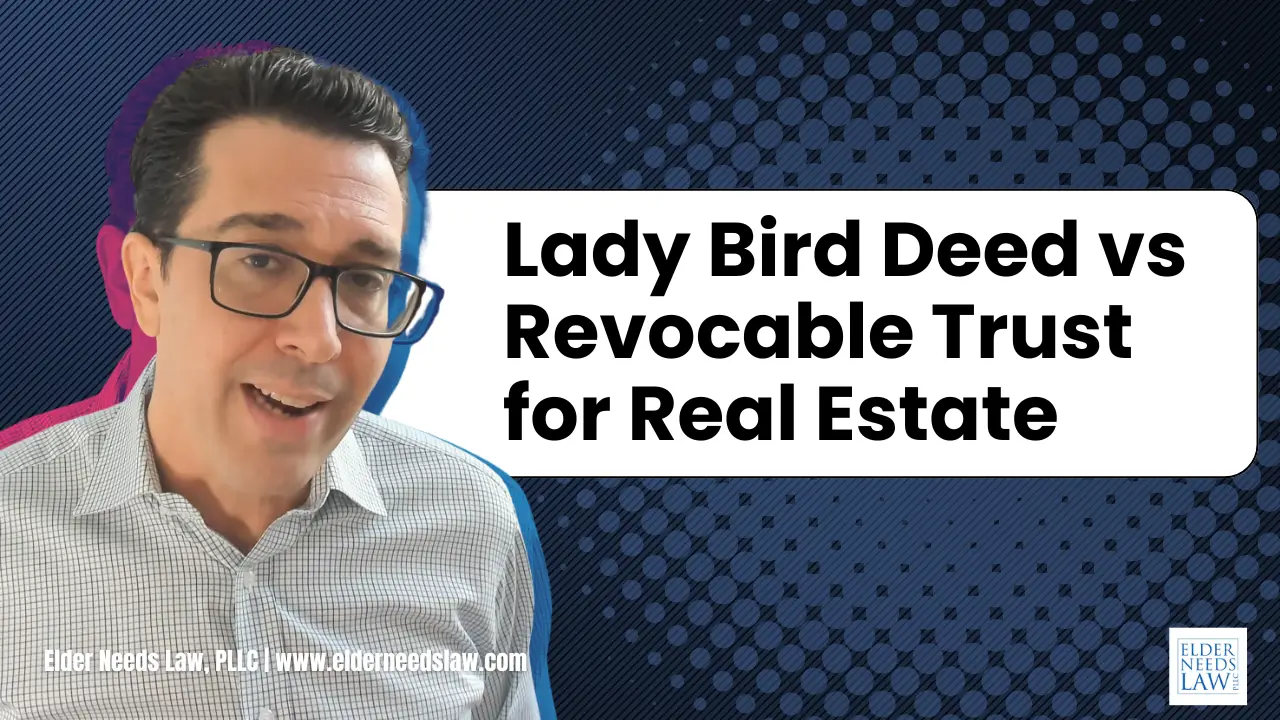How to Protect Your Assets from Medicaid Estate Recovery

We all share the goal of living a long life, and many of us are able to stay independent and healthy for longer than any other point in history. The increase in life expectancy through medical advances and lifestyle changes mean that most of us can expect to live to an advanced age. Of course, the realities of an extended life mean that we have to be prepared for the days when we will need assistance with our day-to-day activities. Being prepared for the realities of long-term care means not only planning for them financially but also recognizing the processes surrounding some of the most common practices.
After anyone passes away, in a typical probate, creditors are given the opportunity to get paid on debts owed (out of funds remaining in the estate). Medicaid is no different. Florida Medicaid is a creditor. Their process of attempting to collect is known as Medicaid estate recovery, and those who are planning for their future into advanced age should do so with an understanding of how Medicaid estate recovery works and what can be done to offer protection. One of our primary goals, as Florida Medicaid Lawyers - is to minimize, or even eliminate, Medicaid Estate Recovery.
The Realities of Long-Term Care
According to the National Institute on Aging, addressing the needs of older adults will become an increasingly important responsibility for individuals and society alike. The number of adults aged 65 and older is expected to skyrocket while family structures have shifted to leave those older adults with fewer options for care. Throughout human history, the number of children has outnumbered the number of older people, but these patterns are set to reverse. Declines in fertility rates coupled with increasing life expectancies have changed typical trends for managing the care of older adults.
Within this population of older adults, those who are age 85 and older are among those most likely to need ongoing long-term care. In high-income countries — including the United States — non-communicable diseases (especially Alzheimer's) already make up a vast majority of the burden of disease - collectively costing billions of dollars a year, a number that is expected to rise alongside the increasing population of older adults.
What this means for individuals and families preparing for long-term care is that it is very likely that an individual will live past an age and condition in which they can adequately care for themselves independently. Many of us will require long-term care either through in-home services, relocation to an assisted living facility, or some combination of long-term care solutions. These services can be very costly. The median monthly rate for a long-term care facility is $3750 nationwide - in Florida, the cost of ALF or nursing home care can be staggering. Meanwhile, the median daily rate of in-home care is $70.
About 50% of older adults use Medicaid to help cover these expenses, and long-term care expenses account for 70% of the total Medicaid expenses used nationwide.
What is Medicaid Estate Recovery?
When answering the question “What is Medicaid Estate Recovery?” a little background is in order: One thing that many recipients of Medicaid benefits to help ease the financial burden of long-term care might not realize is that there is a Medicaid estate recovery plan in place. Under this plan, states are required to recover many of the costs covered by Medicaid at the end of an individual recipient's life. These expenses include payments made to nursing facilities, home and community-based services, and many other medical expenses such as hospitalizations and prescription fees.
Through the Medicaid estate recovery plan, states are allowed to impose liens on property during the recipient's lifetime and use money from the recipient's trust to cover expenses paid during the individual's life. States are not allowed to recover from an estate when there is a living spouse, a child under the age of 21, or a blind or disabled child of any age.
The realities of Medicaid estate recovery mean that an individual's house and trust funds can be taken by the state rather than passed along to family members.
How You Can Protect Your Estate
Many people are distressed to hear that their estates can be seized by the government upon their death. Luckily, there are actions they can take to help protect their assets and ensure that property and other assets are handed over to family members rather than left vulnerable to Medicaid estate recovery. Setting up this kind of protection requires careful and intentional planning that is different from the standard "living trust" with which many people are more familiar.
In order to protect assets from Medicaid estate recovery, one option for those who have the time to plan is to utilize a "Family Asset Protection Trust" or even, quite simply, a "Medicaid Five Year Trust." In these instances, it is best to have transferred all property and assets that need protection into this trust at least five years prior to the anticipated need for Medicaid funds. This is because Medicaid has a "look back" period of five years. Moving these assets into a protected trust long before you anticipate the need for Medicaid can go a long way toward providing protection for your family as you age while also keeping them safe for your use during your lifetime.
If you need help setting up a protective trust as you look to long-term care plans and your own future, let us know. An experienced Medicaid Planning Attorney will be able to advise you on the best possible way to plan for your future.
.png)





